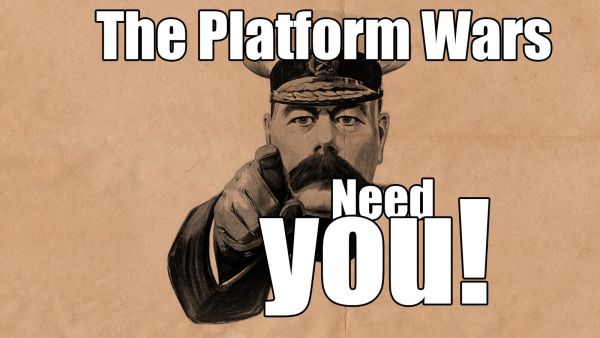As the ‘dark side’ of cyberspace grows - from de-plaforming on Youtube, to 'shadow-banning' on Twitter, to deploying copyright laws that favor large corporations over individual creators - a rebel alliance of thinkers, coders, netizens and artists is emerging.
Amy James, on Blockchain and the future of freedom on the Internet
This group believes that if the monopolistic practices of Big Tech and the control mechanisms of nation-states continue, then cyberspace will become just as regulated, gated and discriminatory as the economy most of us were born into.
‘The Platform Wars’ are essentially about two visions of cyberspace. In one vision, the future of cyberspace is a neatly-coded mirror of the outside world, where a relatively small number of corporations and nations benefit.
Another vision looks towards cyberspace as a zone of renewal, where innovative financial, social and information networks can be scaled to replace the inequitable, over-regulated and monopolistic systems of twentieth century society. So it’s not just about memes and PewDiePie anymore.
‘The Platform Wars’ are essentially about two visions of cyberspace. In one vision, the future of cyberspace is a neatly-coded mirror of the outside world, where a relatively small number of corporations and nations benefit. Another vision looks towards cyberspace as a zone of renewal ...
Right now, it’s safe to say the dark side is very much winning the platforms wars. And yet somewhere in a distant corner of code, a potential hero could be emerging. Here are four reasons why for independent creators on the Internet, the blockchain could be a ‘new hope.’
1. The Tools of the ‘Old Web’ are Limited
Many existing platforms, for example Patreon, began by asking creators to “trust them.” Fast-forward a couple of years, and let’s just say there have been issues. To paraphrase one user, “how do you know there’s no spyware, when you can’t check the code.”
The blockchain is ‘trustless.’ Because it’s decentralized, the only person you are dependent on, is yourself.
2. Set the Financial and Contractual Terms
What if you could set the pricing, commission rates and digital rights management (DRM) settings on any content you produce or publish? That means you can share your creative commons style with the crowd, which is helpful for all those meme’s.
Alternatively you can set the financial, contractual and distribution rights for that album you just recorded, to help pay-back some of that studio time.
3. Own Your Data
You own that photo you just published. Not Facebook. How about that?
4. Interoperable
Right now blockchain is at the “AOL-install disc” stage of development.
The Internet is layered and interoperable. Technologies that are not adaptable and customizable won’t be successful or scale. Crypto solutions like ‘Lightning network’ let you send a 1000th of a penny to a friend from your smartphone. A couple of years ago, that was impossible.
Full disclosure: Al Bawaba is exploring blockchain solutions on the Open Index Protocol.







